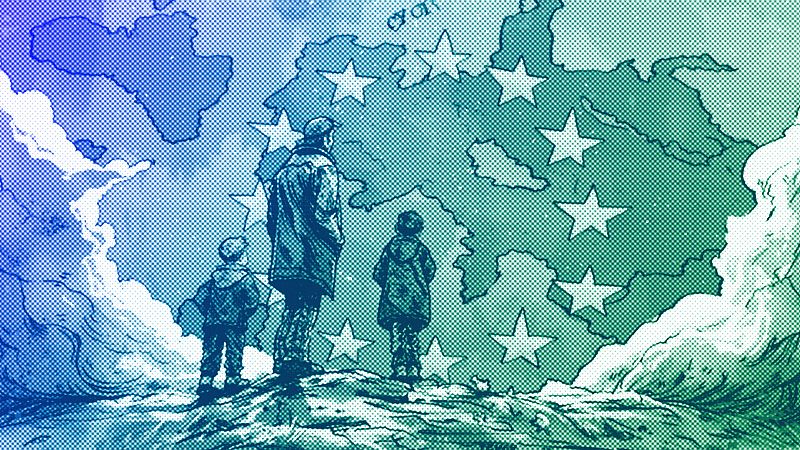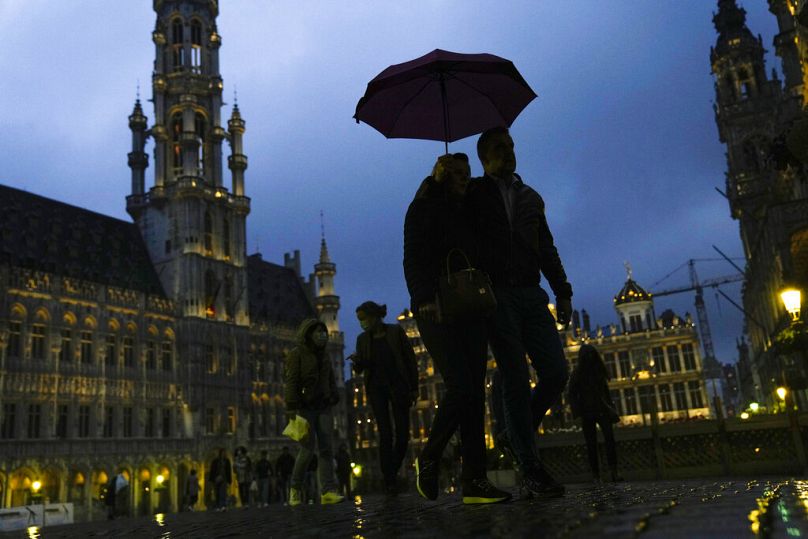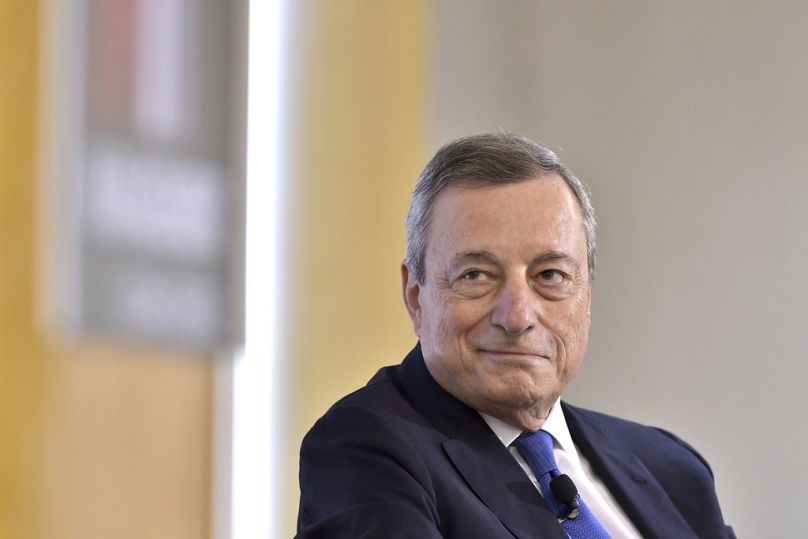European integration is at a crossroads. Why is the EU struggling to define its future?

The phrase, "Europe will be forged in crises and will be the sum of the solutions adopted for these crises," is nothing less than a dogma in Brussels.
In fact, the maxim of Jean Monnet, one of the European Union’s founding fathers, seems to be confirmed with each crisis. But can this dogma be in crisis as well?
A key ingredient in advancing European integration beyond adversities is what I would call a "minimum European consensus" in the sense that the 27 member states pursue a shared destiny and common goals.
Currently, this consensus seems to be in decline, with negative implications for the definition of a long-term strategic orientation for the EU and for taking on the radical changes that the recent Draghi report also advocates for.
While European integration progressed in recent years because of COVID-19 and Russia’s war against Ukraine, the idea that it would continue to advance inevitably is fading away.
The notion of "more Europe" continues to be contested today, especially by the arch going from the conservative right to the radical far right, but also in the European far left.
Although many in Brussels argue that the way ahead to face future challenges is more integration, it is unclear whether this view is shared in European capitals.
In fact, if many of the crises experienced in recent years strengthened the EU's role on some policies (eg public health, joint debt issuance, energy, and sanctions), they also gave more weight to national governments and administrations in other areas (migration, internal security, border control, functioning of the internal market, and defence).
Negative integration vs positive integration
As the inevitability of European integration is challenged and the so-called "minimum European consensus" on what to do together wanes, it is not yet clear what might emerge to reverse these dynamics.
Currently, there are few who would question the importance or even the existence of the EU. The Brexit vaccine helped. What is emerging, especially in the hard right, is a push to change the EU from within.
This idea of change coincides with another: the need for EU internal reforms because of the enlargement process. The dilemma lies in this: the changes that some want do not match the reforms that others wish for.
Without abandoning the objectives that were at the origin of the Union and that led (and still lead) many to want to join the project — peace, political stability and democratic consolidation, economic development, prosperity and social progress — the EU institutions, the member states and Europeans in general have not yet found what can mobilize them for a future together, beyond protection from potential threats and preserving the status quo.
In other words, we are in a phase of integration against what we fear and not in favour of what we want or even dream of. Again, this prevents the 27 from answering simple but vital questions: In the long run, what is the EU for? And where does it want to go? European integration is at a crossroads.
Origins and reasons for the decline
The gradual disappearance of this "minimum European consensus" has at least four origins and reasons worth reflection.
The magnitude of challenges Europe faces is immense. It will be a herculean task for the EU to be able to act on the set of public policies that are today vital, such as competitiveness and economic growth, decarbonisation and climate change, enlargement and support for Ukraine, energy transition, security and defence, reduction of external dependencies and vulnerabilities, demography decline, migration and the sustainability of the welfare state.
The time for feet dragging is over, but the sense of urgency is still missing. And there is more: In addition to being very demanding, these challenges need to be faced simultaneously — is that even possible? If not, which are the main priority areas? There are no simple or immediate answers.
The widespread lack of leadership and vision in member states and at the EU level makes it difficult to answer those questions and face those challenges.
This lack of direction stems from the inability or lack of political will to understand what is at stake — the future of the European project — and to appreciate that the situation in which Europe finds itself will hardly improve in the short or medium term. If we continue in the "slow agony" that Mario Draghi spoke of when he presented his report, we will lose the race we are in.
In fact, it is symptomatic that of a document of almost four hundred pages, the prime attention was given to only five pages dedicated to financing and where disagreement is greatest.
Leadership would mean to first debate the merit of the report, its priorities and recommendations and then discuss how to pay the estimated €800 billion annually.
Another key debate would be about who does what — the EU, the member states, “team Europe,” with or without external partners, the private sector, etc — and how. This, indeed, would have been a show of leadership that is still lacking.
The lack of leadership is also a result of the continued fragmentation of our political systems and the polarisation that accompanies it in most European countries. This is also true at the EU level after this year's European elections with the growth of the Eurosceptic camp.
The pro-European centre remained, but it is narrowing. In addition, consensus and compromises among the centre-right, the centre-left, the liberals and the greens seem to have become more elusive as they, too, become infected by the virus of division.
Political fragmentation also means that, in general, many European coalition governments are weak, facing too many internal pressures.
A closer look at the so-called European engine: France was without a government for more than two months; Germany has an unstable coalition government; and both are under intense and, in some cases, decisive pressure from the far right.
Europe’s choice
Finally, the increasing politicisation of the EU institutions, particularly the European Commission, is not a good thing. From a political to a geopolitical commission, there is a risk of having a partisan commission.
The debates on the next von der Leyen team around the relative weight of countries, political parties, winners, and losers, and not on policy priorities and the common European interest, are illustrative of this trend.
Although they have led to greater integration in some domains, many of the crises that affected the EU have left unhealed political wounds: North vs South, West vs East, frugal vs. spenders, those who welcome migrants and those who reject them.
We could multiply the grievances depending on the crises. The lack of solidarity and of sharing of responsibilities among the 27 at key moments may be forgiven, but not forgotten.
The margins for consensus in Europe are narrower and the challenges are increasing.
The EU is now at a tipping point: Either it manages to generate a new European consensus and stops dragging difficult choices or it risks becoming irrelevant amid geopolitical upheaval.
Ricardo Borges de Castro is Senior Adviser at the European Policy Centre, a Brussels-based think tank.
At Euronews, we believe all views matter. Contact us at view@euronews.com to send pitches or submissions and be part of the conversation.
Today



